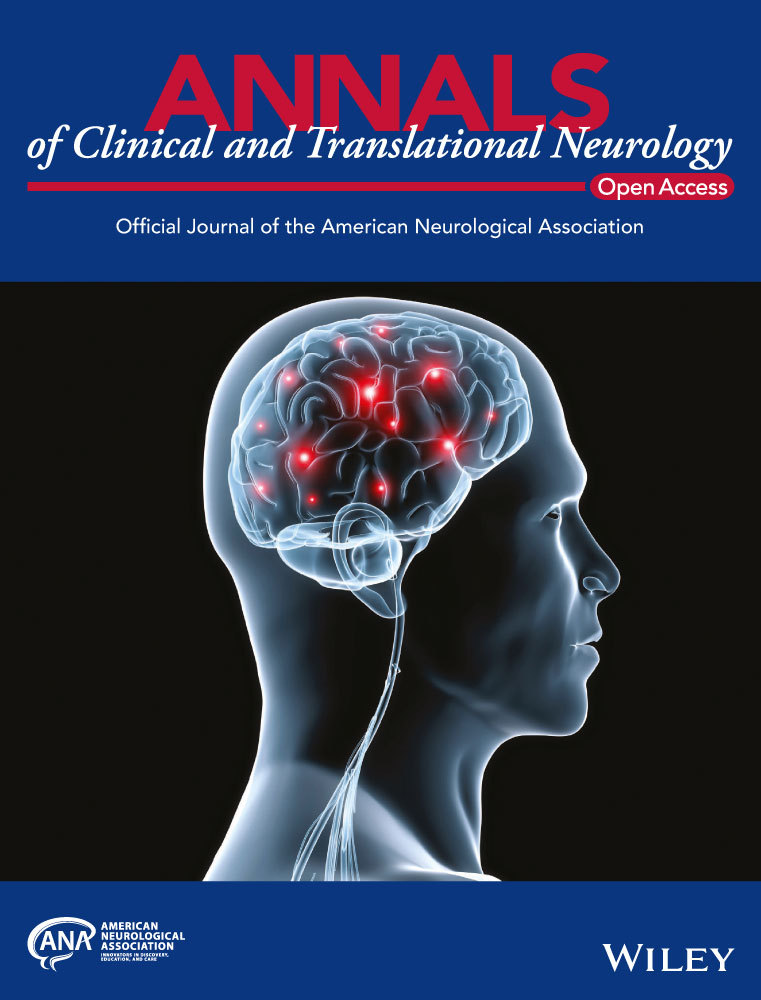Reply: Gut microbiome alterations in anti-NMDA receptor encephalitis: caveats for result interpretation
Funding Information
This study was supported by the National Natural Science Foundation of China (grants 81971213, 81671291 and 81420108014) and National Key R&D Program of China (2018YFC1312300).
First, we thank Giulia Berzero and colleagues for their thoughtful comments about our recent paper.1, 2 We welcome the opportunity to clarify some of our findings and their associated caveats. The authors note that we did not state whether patients with acute anti-NMDAR encephalitis received corticosteroids, immune therapies, or antimicrobial treatments, which could potentially affect microbiome composition. In our study, as mentioned in the Methods section and the flowchart in Figure 1, all patients with anti-NMDAR encephalitis in the acute disease phase were prospectively recruited. Fecal samples were collected immediately upon the admission of patients who presented acute psychiatric symptoms, seizures, or focal neurological signs and were susceptible to anti-NMDAR encephalitis. Patients did not receive any immune therapies before anti-NMDAR antibody encephalitis was confirmed by specific antibodies and other laboratory tests to exclude any other etiology. The fecal samples from the patients with acute anti-NMDAR encephalitis were collected before corticosteroids or other immune therapies were applied. In addition, we stated in the “exclusion criteria” that all patients and healthy controls who had antibiotic or probiotic use within the past 3 months were excluded from our study. As shown in Table 1, only 10 patients in the acute disease stage with an average mRS score of 1.9 (range of 1–3) were recruited and did not need the support of mechanical ventilation. We apologize for any confusion in our report and thank Giulia Berzero et al. for their careful review of our manuscript.
As noted by Giulia Berzero and colleagues, due to the substantial differences between different populations, our results might not be transferable to western patients. Previous reports in the USA or Europe3-5 have shown that more than 80% of patients were female, and 20–59% of patients had tumors. As reported in our previous studies, in the Chinese cohort, there was a relatively higher proportion of males (45.0%) and reduced tumor rates (15.0%); only 15% were admitted to the ICU (compared to other cohorts 50–77%).6, 7 The discrepancies thereby remind us of how little we know about the genetic background, etiology, triggers, and disease mechanisms in NMDAR encephalitis between different populations. In addition, a recently published study did not show any significant difference of gut microbiome between a small cohort of western patients with anti-NMDAR encephalitis and healthy control,8 although the effect of drugs on the gut microbiome could not be excluded in their study since some of the study subjects received immunesuppressives, neuroleptic medication, and probiotics. Hence, future studies are needed to enroll more multicenter participants to understand the functional effects of the differences in the gut microbiota on disease initiation, aggravation, and progression. We hope that our study will further stimulate more discussion and research in this area.
Indeed, we entirely agree with Giulia Berzero and colleagues that a multivariate approach would correct for these confounding factors. A larger cohort is necessary if a multivariate approach is applied to statistical analysis to obtain scientific results. In addition, our study is an association study, from which one is unable to draw causal relationships.
We hope this letter will meet the major concerns raised in the study of gut flora in patients with anti-NMDAR encephalitis. We appreciate the interest that Giulia Berzero and colleagues have shown in our study and the opportunity to discuss their concerns.
Conflict of Interest
The authors have no conflict of interest to disclose.




